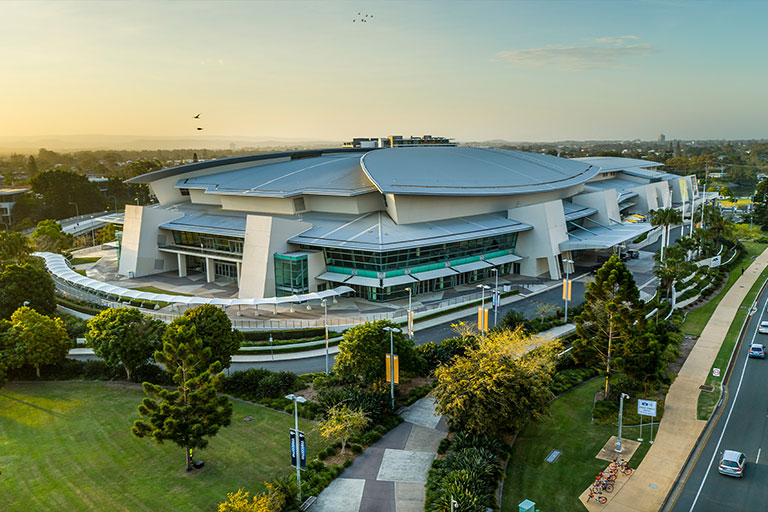Developed with climate software business NetNada, the calculator provides venue-specific emissions estimates for event spaces at GCCEC.
“Our duty of care is to ensure we are not only being accountable to the operations of GCCEC but empowering our clients to strengthen their knowledge and understanding on the energy, waste and water emissions generated by their events,” said GCCEC’s sustainability advisor, Larissa Rose.
“The calculator provides a way to access data and compile it in a way to educate and empower greater understanding.”
The convention centre has strong sustainability credentials, having been among the first convention centres in the world to receive Master certification status from EarthCheck, recognising 15 years of sustainability improvements.
“Sustainability is an important responsibility for everyone, and our calculator is a tool that can offer invaluable information to educate our clients and assist with building greater awareness about the emissions that are generated by events, and finding solutions to reducing these levels,” said GCCEC’s executive manager of operations, Terry Murphy.
Meanwhile, co-founder of NetNada, Afonso Firmo, highlighted the role of the events and hospitality sectors in the collective journey towards net zero carbon emissions.
“There’s a significant opportunity for companies to put their ambitious strategies into action and attract eco-minded customers by partnering with sustainable venues that provide low emissions and sustainable experiences,” he said.
GCCEC also recently released an outline of its five-year sustainability strategy, setting out its planned actions to 2028.
The strategy is broken down into a three-phase approach encompassing audits, data collection and planning in phase one, transition, engagement and implementation in phase two and further implementation, assessment and improvement in phase three.
Areas targeted by the sustainability strategy include further reducing waste to landfill, reducing water consumption, increasing energy efficiency and reducing carbon emissions, increasing education and awareness, enhancing community benefits and partnerships and exploring sustainable materials and procurement.




















